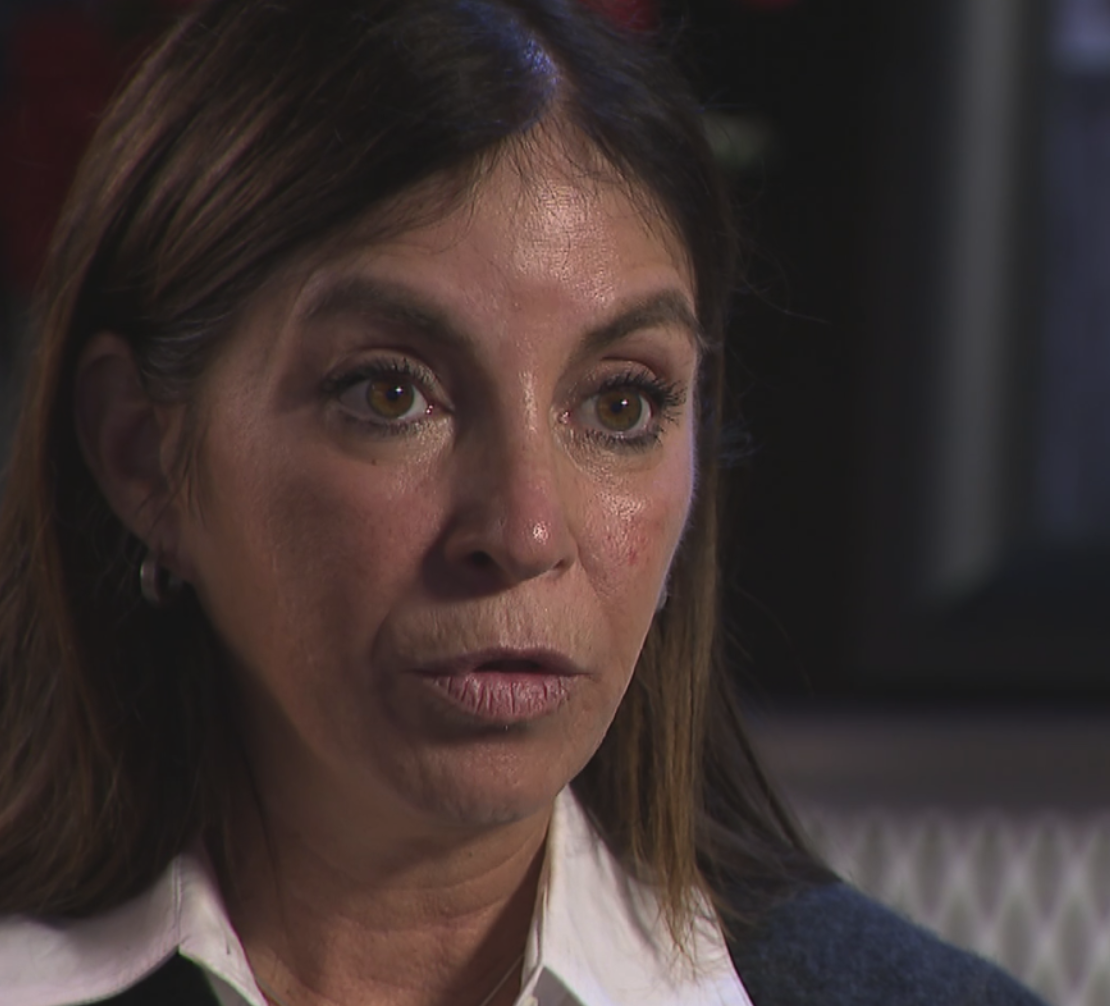The (ongoing) hunt for Canada’s last Nazis
Canada's Nazis are now well into their 90s. One woman is making a last push to bring them to justice.
Abbee Corb has been tracking down Canada’s last surviving Nazi suspects. Global News
For Nazi hunter Abbee Corb, there are cases that stand out, like the one she calls the “baby smasher.”
A criminologist with a PhD, Corb was searching for Nazis who had resettled in Canada when she came across the file.
A witness statement written in 1945 described how a young Lithuanian woman named Klimaite had “smashed heads of Jewish children with rocks.”
A woman matching the suspect’s profile had moved to Canada after the war, and the professor tracked her to an address in Windsor, Ont.
Corb knocked on her door with a list of questions that amounted to one thing: did Klimaite have a dark secret to confess?
The case is among several Corb is pursuing as the clock winds down on the effort to bring Nazi war criminals to justice.
Only a handful of the Nazis suspected of coming to Canada with the post-war migration wave are still alive, and they are well into their 90s.
But Corb believes they must be held to account, regardless of their age. Even those who have died need to be exposed through the release of Canadian government records.
“We have to uncover the truth. We have to pursue this. We can’t throw it under the rug and pretend it didn’t happen.”
Hundreds of suspected Nazis were investigated by the RCMP’s war crimes unit in the 1990s, but with little results.
The paperwork from those cases has never been fully made public. While the Canadian government has shown little interest in launching any new cases against Nazis, it is under pressure to at least unseal its records.
The issue resurfaced in September, when MPs unwittingly paid tribute to a 98-year-old said to be Waffen SS member in the House of Commons.
Prime Minister Justin Trudeau apologized, and said he would consider releasing Canada’s Nazi war crimes files.
So far the government’s only action has been to further declassify a study prepared for Canada’s 1987 Commission of Inquiry on War Criminals.
The gaffe in Parliament resurrected a painful lapse in Canada’s post-war history: the failure to keep out or prosecute those who played a role in the Holocaust.
In the decades following the war, Jewish groups alerted the government to the Nazis and collaborators who had slipped into Canada: an Auschwitz commander, a Gestapo member, soldiers, and camp guards.
Their alleged crimes included torture, executions, massacres, liquidation of Jewish ghettoes and “participating in the extermination of Jews,” according to government records.
Some of the allegations were specific. One suspect was accused of “having two women hosed down overnight with cold water for acts of sabotage” in Austria. Both froze to death.
Following the war, the Canadian government wanted migrants with anti-communist credentials, and paid little attention to their roles during the Holocaust, said Toronto lawyer Mark Freiman.
Within a few years, Canada gradually lifted its immigration bans on former members of the Nazi Party, German Army, SS and Waffen SS, opening the door for them.
“The Canadian government wasn’t picky in terms of looking at the possible Nazi past of immigrants from Eastern Europe,” said Freiman, Ontario’s former deputy attorney-general and the son of Holocaust survivors.
“And in that number of immigrants,” he said, “there were a distressing number of real Nazi sympathizers, Nazi collaborators, and in some cases, Nazi perpetrators.”
Among those found in Canada and accused of being Nazis was Helmut Rauca.
In an interview, Holocaust survivor Elly Gotz said Rauca came to the Jewish ghetto where his family was imprisoned in Kaunus, Lithuania, and sent thousands of Jews to their deaths.
After surviving the Dachau concentration camp and moving to Canada, Gotz discovered that Rauca was living nearby in Toronto. The RCMP approached Gotz’s mother to confirm the former Gestapo member’s identity, he said.
In 1983, the Canadian government sent Rauca to Frankfurt to stand trial for more than 11,000 murders in Lithuania, but he died before he was brought to court.
“The track record of Canada on condemning the war criminals is poor, very poor,” said Gotz, who is now 95.
Now a public speaker on the Holocaust, Gotz said justice needed to be done. “It’s necessary to teach society that you don’t get away with it.”
With allegations mounting that Nazis were living in Canada, the government formed a commission of inquiry in 1986, and gave courts the power to prosecute war crimes.
A newly formed RCMP War Crimes Unit conducted over 1,500 investigations, but even back then, police were backing off suspects deemed too elderly for trial.
A 1990 document on the “highest-ranking Nazi presently under investigation in Canada,” said the case would be “recommended for closure, due to the advanced age of the subject (87 years old).”
The first to be charged was Imre Finta, accused of forcibly deporting 8,617 Jews from Hungary before he arrived in Canada in 1948.
He was acquitted on the grounds that he was just following orders, prompting the collapse of Canada’s war crimes prosecutions.
The government then tried a different tactic: revoking the citizenship of Nazis for lying about their past when they entered Canada.
One of the first targets was Helmut Oberlander, an alleged interpreter for the SS who came to Canada in the 1950s and lived in Waterloo, Ont.
Immigration officials spent more than three decades trying to rescind his citizenship. The case was still before the courts in 2021 when he died at the age of 97.
He was one of a dozen accused Nazis targeted by the Canadian government who died before court or deportation proceedings were completed, according to government statistics obtained by Global News.
Only one was stripped of citizenship and successfully deported. Two others left the country voluntarily after losing their citizenship, while one was extradited, the figures reveal.
That is all Canada has to show for its fight against Nazis. Twenty-seven suspected Nazis were taken to court. Not a single one was successfully prosecuted and the vast majority of investigations went nowhere — including the “baby smasher case.”
By Stewart Bell & Jeff Semple Global News
This excerpt was taken for educational purposes only. For the full story, got to: https://globalnews.ca/news/10207423/the-hunt-for-canadas-last-nazis/


